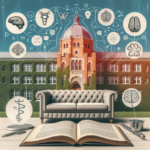
Introduction
Imagine a symphony orchestra, each musician playing a crucial role in creating a harmonious masterpiece. In this orchestra, hormones are the musicians, deftly coordinating various bodily functions that directly impact our physical and mental well-being. The relevance of this metaphor cannot be overstated; hormones play vital roles in everything from mood regulation to metabolism and overall health. This article delves into The Hormonal Symphony: Understanding the Impact of Hormones on Physical and Mental Wellness, revealing how these chemical messengers orchestrate the symphony of our lives.
By unraveling the complexities of hormones, we not only gain insights into their impacts on health but also learn how to optimize our hormonal balance for improved physical and mental wellness. As we explore the musical notes of this hormonal symphony, we will examine the science behind it, real-world applications, and practical steps you can take to ensure your orchestra is always in tune.
The Basics of Hormones
What Are Hormones?
Hormones are chemical substances produced by various glands in the endocrine system, influencing many physiological processes. They travel through the bloodstream to tissues and organs, having diverse effects on growth, metabolism, mood, and reproduction.
The Endocrine System: The Conductor of the Orchestra
The endocrine system consists of several glands including the pituitary, thyroid, adrenal glands, and pancreas. These glands serve as the conductors of our hormonal orchestra, communicating with one another to maintain balance—often referred to as homeostasis.
Major Hormones and Their Functions
Here’s a simplified table drawing on some of the most significant hormones and their roles in the body.
| Hormone | Gland | Function |
|---|---|---|
| Insulin | Pancreas | Regulates blood glucose levels |
| Cortisol | Adrenal Glands | Involved in response to stress |
| Estrogen | Ovaries | Influences female reproductive processes |
| Testosterone | Testes | Regulates male reproductive functions |
| Thyroxine | Thyroid | Affects metabolism |
Understanding each hormone’s role is crucial in The Hormonal Symphony: Understanding the Impact of Hormones on Physical and Mental Wellness, as imbalances can lead to various health issues.
The Physical Impact of Hormones
Hormones and Metabolism
Hormones significantly influence metabolism—the rate at which your body converts food into energy. For example, thyroid hormones like thyroxine regulate metabolic rates. An overactive thyroid (hyperthyroidism) can lead to weight loss and anxiety, while an underactive thyroid (hypothyroidism) can cause fatigue and weight gain.
Case Study: The Weight Loss Journey
Consider a case study involving Sarah, a 35-year-old woman who struggled with weight management for years. Despite following a strict diet, Sarah found herself gaining weight. After consulting with an endocrinologist, she was diagnosed with hypothyroidism. Following hormone replacement therapy, Sarah not only lost weight but also experienced heightened energy and improved mood.
Relevance: This illustrates how thyroid hormones can influence metabolism and weight management, a critical aspect of physical wellness.
Hormones and Muscle Development
The role of testosterone is essential in muscle development. Higher testosterone levels support muscle growth, strength, and even fat loss. This explains why men typically have more muscle mass than women.
Case Study: Gym Transformation
Take Jake, a 28-year-old gym enthusiast. He dedicated himself to lifting weights, yet he couldn’t achieve the muscle gains he desired. Lab tests revealed low testosterone levels. After undergoing treatment, Jake noticed significant muscle growth and strength improvement within weeks.
Relevance: This case underlines the importance of hormones in physical performance and body composition.
Hormones and Immune Function
Cortisol, often termed the “stress hormone,” plays a critical role in modulating the immune response. Chronic stress can lead to elevated cortisol levels, impairing immune function and making individuals more susceptible to illness.
Case Study: The Business Executive
Michael, a 45-year-old corporate executive, found himself frequently ill. His high-stress job contributed to elevated cortisol levels, suppressing his immune system. Once he implemented stress management techniques, including mindfulness and exercise, his immune function improved, significantly reducing the frequency of his illnesses.
Relevance: Understanding how stress impacts hormonal balance is crucial for overall physical wellness.
The Mental Impact of Hormones
Hormones and Mood Regulation
Hormones play an essential role in mood regulation, with serotonin, dopamine, and oxytocin being particularly influential. Imbalances can lead to conditions such as depression, anxiety, and mood swings.
Case Study: The Effects of Postpartum Hormonal Changes
Consider the case of Lisa, a new mother who experienced severe postpartum depression. Her physician explained that the drastic hormonal fluctuations following childbirth—particularly drops in estrogen and progesterone—were contributing factors. With a combination of therapy and hormonal treatments, Lisa was able to reclaim her mental wellness.
Relevance: This highlights the powerful connection between hormonal changes and mental health.
Hormones and Stress Response
Understanding how cortisol affects mood can shed light on how we respond to stress. Elevated cortisol during stressful situations can lead to anxiety and irritability, profoundly impacting mental wellness.
Case Study: The Student Athlete
John, a college student and athlete, faced immense pressure to perform. He experienced anxiety and sleep disturbances. With the help of counseling and stress management techniques, John was able to lower his cortisol levels, ultimately improving his academic performance and mental health.
Relevance: This case illustrates the direct link between hormonal stress responses and mental well-being.
Tips for Achieving Hormonal Balance
Nutrition: Fuel Your Symphony
Eating a balanced diet rich in vitamins, minerals, healthy fats, and proteins can significantly influence your hormonal balance. Foods rich in omega-3 fatty acids, probiotics, and antioxidants have been shown to support hormonal health.
Exercise: The Rhythm of Life
Regular physical activity not only supports physical health but also positively influences hormonal balance. Exercise increases the production of endorphins and helps balance stress hormones.
Sleep: The Silent Conductor
Quality sleep is essential for hormonal production, especially for hormones like cortisol, testosterone, and growth hormone. Aim for 7-9 hours of uninterrupted sleep each night to support hormonal health.
Stress Management: Tuning the Orchestra
Incorporating practices like yoga, meditation, or mindfulness can help keep cortisol levels in check, providing a conducive environment for hormonal balance.
Conclusion
In closing, understanding The Hormonal Symphony: Understanding the Impact of Hormones on Physical and Mental Wellness is vital in promoting a healthier, more vibrant life. By comprehending how hormones orchestrate various physical and mental processes, we can take actionable steps to achieve balance.
Be proactive; monitor your body’s signals, consult healthcare professionals when necessary, and implement lifestyle changes that support hormonal health. Remember, you are the conductor of your orchestra, and it’s time to ensure each musician is playing in harmony.
FAQs
Q1: How can I naturally balance my hormones?
A: Focus on a balanced diet, regular exercise, quality sleep, and effective stress management techniques.
Q2: What are common signs of hormonal imbalance?
A: Signs can vary but may include weight gain/loss, mood swings, fatigue, and changes in menstrual cycle.
Q3: Can hormonal imbalances affect fertility?
A: Yes, hormones play a crucial role in reproductive health, and imbalances can lead to issues with fertility.
Q4: How does aging affect hormone levels?
A: Aging typically leads to a decline in hormone production, particularly sex hormones like estrogen and testosterone, which can impact health and wellness.
Q5: When should I see a doctor regarding hormones?
A: If you experience persistent symptoms of hormonal imbalance or changes in your physical or mental health, it’s advisable to consult a healthcare professional.
By integrating this comprehensive knowledge about hormonal health, we not only foster awareness but also empower ourselves to live more fulfilling, harmonized lives. After all, your hormones are not just chemical messengers; they are the cornerstone of your health.













